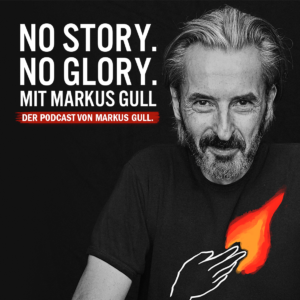After my last blog article about mentors, a discussion began in my team about why there are actually so few women mentors in fiction, stage literature and film.
That's a really interesting question!
To a large extent, this is naturally related to the miserable position of women in society and to the everyday culture that has been lived over the centuries, in which everything that concerns wisdom and leadership has almost reflexively always been assigned to male figures and all too often still is. Against one's better judgement.
In fact, this shortcoming smells all the more paradoxical because literature in particular is supposed to be an essential source of questioning - including social convention - and at the same time almost every person in principle encounters a mentor as their first mentor: their mother.
In many cases, this may not work out as well as it should, but in the vast majority of biographies, the mother is the caregiver who shows the little hero all kinds of things as he takes his first steps on his journey and points out many things that stem from her wealth of experience; motivates, orients, inspires him - everything that mentors do when the day is long and the heroine and hero are in search of values, truth and jelly bears.
TOO LAZY TO READ ON? THEN LISTEN TO ME:
In the blogcast, I read this recent blog article to you. With emphasis, of course!
NOW ALSO AVAILABLE ON APPLE PODCAST AND SPOTIFY!
Mentors - wisdom in its purest form.
When we think of the two official heart chambers that make up every decent mentoring pump, empathy and competence, we immediately think of the mother. Or the grandmother, as in my case, the old Story Dudette, who accompanies me to this day, with her inexhaustible wisdom - nourished from Forrest Gump's omnipresence and always spread without being asked. I only say: Trojan horse ... Because "Timeo Danaos et dona ferentes" was only parroted by Laocoon, and we all know to whom. We also know how it turned out for him, just as a small hint for all those who all too nonchalantly pass off foreign quotations as their own ...
Speaking of Troy! The term mentor comes from the Odyssey. There, a man named Mentor was the best friend and advisor of Odysseus and especially of his son Telemachos. Why was Mentor able to fulfil this task so brilliantly? Because time and again the goddess of wisdom, strategy, battle, art, craftsmanship and manual labour slipped into his body and spoke from him, the wise goddess - in this case Athena and for once not the old story Dudette.
So the original Ur-Mentor could be a mentor primarily because a female being, a goddess, and specifically the goddess of wisdom, spoke from him. And yet literature is poor in female mentor figures, in mentors.
I don't know any more ...
Who can we think of?
Hm...
Where are the legendary mentors?
Pippi Longstocking - as a mentor especially for Tommy and Annika, but also for everyone else around her. Or Deloris in "Sister Act", who, with her more than unconventional manner, massively airs out the thinking in the convent. Both highly effective mentors, but per se not designed as mentors.
Mary Poppins and Nanny McPhee as nannies, or good fairies and witches like Glinda from the Wizard of Oz come to mind. Then the teachers Katherine Watson from "Mona Lisa Smile" and Erin Gruwell from "Freedom Writers" come to mind and maybe, with one eye closed, the penultimate M character from James Bond, played by Judi Dench; but it's getting thin.
Even away from the classic role model as mother and kind guardian - or the direct opposite: the tomboy in a dress. Really juicy mentor legends of the Merlin/Gandalf/Obi-Wan Kenobi type who are really well known to everyone? Not a chance!
There's a pretty wide, dark gap in the literature, isn't there? In real life, things may look a bit better, meanwhile.
When the topic of teachers comes up, for example, after the usual jokes and official lamentations, the names of female teachers often come up, usually from primary school days, who were the laudable exception and are therefore never forgotten. Guaranteed never! I hope you had one of those - my primary school teacher was a man, and the headmaster too. Here we go again!
Mentor, role model, influencer
If we blur the lines between mentor, role model and influencer, i.e. cast our gaze on the mentor who knows nothing of her good fortune, we're already doing better. The personnel cover is not quite so thin, although with many, many of these special women who shape our real lives, this eternal "... and that as a woman ..." hums along in the background and thus the seriousness of their achievement tastes a little less healthy with the icing of extra recognition.
What does that mean: "... and that as a woman ..."? Somehow it means quite a lot. It means that there is a lot to think about, to catch up on for a society in which behind every successful man there is a strong woman, as we hear all the time ...
Yes, our mentors who don't know us - there are also such mentors, and they are not necessarily the worst, although you can't ask them anything most of the time, the empathy is basically very one-sided and you have to put all sorts of things together yourself. Mentors from afar - role models in a special task or life situation in which we find ourselves, which they also went through in a similar form and which they mastered through their actions in an exemplary and instructive way for us. I read many (auto)biographies of such people and learn. Just reading "Long walk to freedom" by Nelson Mandela (another man!) puts your view on the problems of your own life in a perspective that stops your complaining in the same second. "Bird by Bird" by Anne Lammott is a wonderful biographical book about writing, but above all about work ethic and perseverance in the travails of the plains that every creative activity brings with it, mercifully and without exception.
I think that when women mentors enter our lives through their work and impact, and we see just that, cleansed of all the pre-judgement and relativisation parameters, then something has indeed moved into the green. So for me, I do a simple test when I develop female characters in my work as a fiction writer:
A) Would this female character also have the same effect if she were male, without any relativisation?
B) Is this character necessarily female because it moves something for the cause of women, without any relativisations?
For all "Grey's Anatomy" viewers: Dr. Miranda Bailey is such a character who shows these two facets well.
Mentors made of flesh and blood.
In reality, the life of Jane Goodall shows us all what one can achieve when one has found or been found by one's purpose. Yes, for my sake "... and that as a woman ...", but what she does would probably not match most men, even the over-privileged ones, so stands for itself and for her as a human being.
Or Taylor Swift, who got Apple iTunes to rethink with an open letter and got artists to get their royalties from the users' free trial period. The mentor's message - also to the boys, by the way: Stand up for your cause, and if you have the power, stand up for everyone else, because every gift is a task. Male artists could have dared to do that, but they didn't.
You can also stay seated when you want to stand up, like Rosa Parks did 65 years ago on a bus in Alabama, and kick off a lot - the civil rights movement in the US.
This does not mean that no one should care about women's rights, #metoo and all related hot topics - on the contrary: this would be something for companies that are serious about their purpose and concerns and everything else that is in vogue. Great things could be achieved here, in the interest of all and also in the interest - why not? - of the brands themselves.
Can brands act as mentors?
I immediately think of the still legendary "Think different." film by Apple, of the people whose craziness made them think they could change the world - and who thus did. Two women came forward - Maria Callas and Amelia Earhart, that's it.
Notice anything?
Can you think of anything?
Apple itself has had very few ideas for a long time, but Nike fortunately has a few more - which Serena Williams also notes.
Since 2014, my favourite project #likeagirl by Always has been demonstrating how a brand can substantially exemplify its mentor ambition. Always is in itself a mentor*influencer role model for the many, many brands whose managers go round in circles in search of a brand story and think they've found their happiness in proclamation films, like this one by Billa or in this one from Zalando.
What remains of it? A huge vacuum in which the - excuse my French - advertising shenanigans rattle around like an escaped balloon and the echo of the phrase "That's how you feel intentionally, and you're out of tune" swells into tinnitus from which the target groups hide in droves. Yes, it may be well-intentioned, and there are certainly waste paper containers full of studies that prove how super it works. It may be that such things are effective for a short time, but in fact they remain ineffective - for the brands themselves and for the cause anyway.
Something like #likeagirl should also exist for boys, for young men, for all men - especially in the debate about the more than self-evident equality of women in society. When is a man a man, and how is that reflected in his role models - for example as a father, as a partner, as a man? How does he recognise the best version of himself? Which brand could be a mentor to these men, or even a mentor, lighting some lighthouses for them in finding perspective and orientation?
When we look around the Procter & Gamble shelf, the Always sibling brand Gillette catches our eye. My goodness, that would be a perfect set-up! That's probably exactly what they were thinking at Gillette, and I'm afraid they stopped thinking at the same moment. In any case, the brave brand champions there showed how big Always 's footsteps really are and that you first have to be able to #likeagirl before you can be the best you can be. Sometimes you learn from mentors how not to do it, as you will quickly discover here .
Greta transforms the world.
Perhaps the appearance of Greta Thunberg is moving something in her generation not only in terms of the climate crisis, but also in terms of the perception of women as mentors, influencers and role models beyond mother beast, sensuality goddess and tomboy, among female and male audiences alike?
In our world, where the leaders of society, i.e. politicians, regularly and systematically play truant from their profession, and where people think you can recognise a successful politician by the fact that he wins elections, it is also no wonder that tobacconists are considered systemically relevant, but bookshops are not. It is then also anything but a wonder that the basic social consensus shot teachers out of the ranks of the sacred professions and hung them straight into the joke cabinet to be bled dry.
And who is surprised that our world is now lacking those who accompany others in their transformation with a loving heart, the mentors? For in his announcement: "The planet no longer needs successful people. The planet desperately needs peacemakers, healers, innovators, storytellers and lovers of all kinds", the Dalia Lama definitely meant women. Just as men may feel affected by the thought "Be yourself the mentor you would have liked to have had".
And by the way, the correct translation of "Timeo Danaos et dona ferentes", is not at all "Don't look a gift horse in the mouth", but, as my grandmother, the old Story Dudette, wrote to Vergil behind his favourite ear: "No Story. No Glory."
NOW NEW ON APPLE PODCAST, SPOTIFY AND SOUNDCLOUD
No Story. No Glory. - The Podcast




